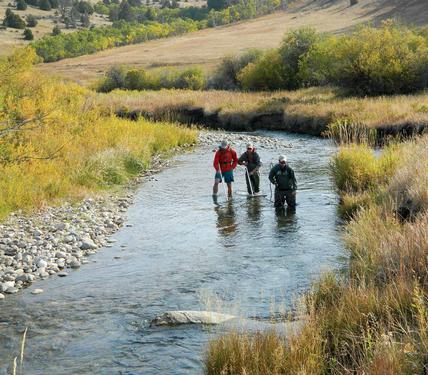
Mike Phillips was interviewed by Kira Sadler, the program director for Voices for Biodiversity, a multimedia platform that takes an anthropological approach to the problem of biodiversity loss.
Kira and Mike spoke on the benefits of private conservation, including how less oversight can result in more success and how TESF can serve as a model for other landowners.
The top one hundred private land owners in the United States own a staggering 40.2 million acres of land, an area roughly the size of Maine, New Hampshire, Vermont, Massachusetts, Connecticut and Rhode Island combined. With this incredible amount of property, private lands have the potential to make a great contribution to the conservation of biodiversity and natural ecosystems. Philanthropist and media mogul Ted Turner owns 2 million acres of land, making him the second largest private landholder in the United States. In 1997, growing awareness of what is now acknowledged as a global extinction crisis pushed Turner to look to his own property to see how he could conserve biodiversity and restore endangered species. He founded the Turner Endangered Species Fund (TESF), an organization “dedicated to conserving biological diversity by ensuring the persistence of imperiled species and their habitats with an emphasis on private land”.
Now managed by Turner’s son, Beau, and Mike Phillips, TESF engages in species restoration on Turner Ranches in collaboration with state and federal natural resource agencies. TESF is unique in that they go beyond the basic conservation and protection of land, and actively work to reintroduce and restore imperiled species within the boundaries of their property. Restoration projects have reintroduced and strengthened populations of black-footed ferret, bolson tortoise, Mexican wolves, northern Rocky Mountain gray wolves and other rare species.
Read the full article here.
